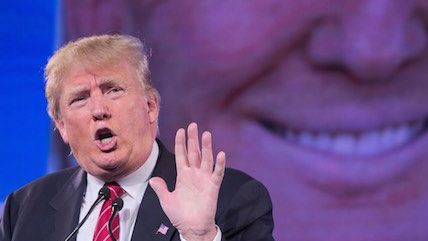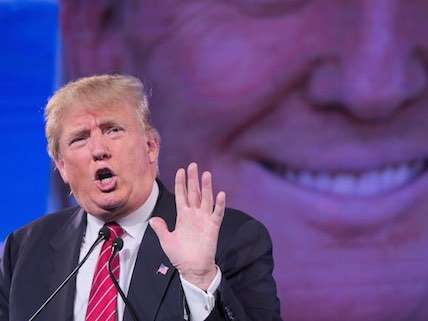Here's More Evidence the Trump Movement Is Backlash Against Political Correctness
Conservative celebrities say Trump will take a stand against (you guessed it ) PC fascism.


Stephen Baldwin—the actor, outspoken conservative, and brother of Alec Baldwin—supports Donald Trump for president, and his main reason is this: Trump is against political correctness.
"The first policy of his that I favor is this guy is gonna take a stand when it comes to the BS of the PC—the political correctness," said Baldwin in an interview with Newsweek. "The BS about the political correctness, how many decades have we been saying that the machine is broken and this and that?"
Baldwin was not the only conservative celebrity to express such sentiments. Ted Nugent, another Trump supporter, said this: "America must err on the side of security during a dangerous war on terror, where Americans' lives trump hurt feelings and political correctness."
Scott Baio, Kid Rock, Jon Voight, and Mike Tyson did not mention political correctness by name, but their answers to Newsweek's question—why do you support Trump?—suggest that they are similarly impressed by Trump's say-anything attitude.
In Trump's view, we don't win anymore, and a big reason we don't win is because we're too afraid to speak the truth—too afraid of hurting people's feelings. This is what Trump supporters love about him: his celebrity supporters very much included.
As I've written previously, many criticisms of political correctness strike me as ridiculously overblown. It seems hyperbolic to assert that being too PC is a national security threat, as Rep. Steve King has claimed.
At the same time, it is true that political correctness—defined as efforts to compel (not just encourage) hyper-sensitive speech—is an increasingly powerful force on American university campuses, where what counts as offensive conduct is much, much, much broader. Indeed, mere expressions of pro-Trump political advocacy at Emory University, Scripps College, and the University of Michigan have met with institutional reprisal on grounds that they constitute not just hate speech but actual violence toward easily offended students. When writing "Trump 2016" in chalk on the sidewalk of a university campus becomes some kind of free-expression stunt, it's not surprising that some students will cheer for a madman.
Obviously, "he isn't afraid to be offensive" is a terrible reason to overlook Trump's truly awful policies (particularly on trade, immigration, and even free speech itself). But given that "he isn't afraid to be offensive" is driving so many people to Trump in the first place, perhaps it's worth exploring whether ratcheting down the PC-based censorship crusde currently underway in American higher education might forestall the appearance of future Trumps.


Show Comments (110)